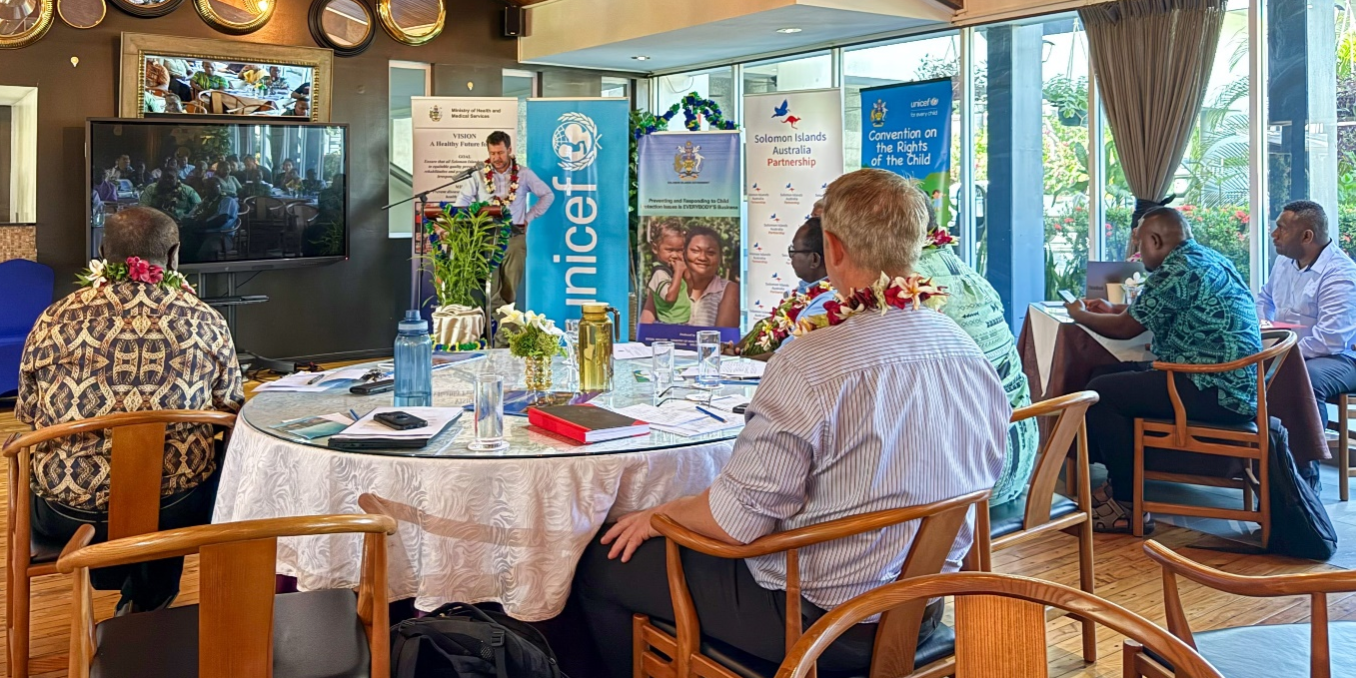CHILDREN and families across the Solomon Islands are set to benefit from a new national plan aimed at strengthening child protection and improving family wellbeing.
Led by the Ministry of Health and Medical Services (MHMS) with the Ministry of Women, Youth, Children, and Family Affairs (MWYCA), the Child and Family Welfare System Multi-Sectoral Implementation Plan 2025–2030 brings together key sectors to work in a more coordinated way.
By joining forces, these sectors – including health, education, justice, social welfare, and community services – will help ensure that children are safer, families are better supported, and services are more effective across the country.
“The goals of the National Children’s Policy 2023 to 2030, which are to ensure all children are safe, supported, and able to reach their full potential, are carried forward here through practical, measurable actions. The MHMS is pleased that this Plan is fully aligned with the National Health Strategic Plan 2022 to 2031,” MHMS Supervising Permanent Secretary Dr Gregory Jilini said.
“At the highest level, the Plan supports Solomon Islands National Development Strategy 2016-2035 by promoting strong families, healthier communities, and a more inclusive society. When we protect children, we invest in the future of our nation.”
With technical support provided by UNICEF and funded by the Australian Government, this new plan is designed to put stronger actions in place to support the Child and Family Welfare Act 2017.
Despite progress since the launch of the Act, the lack of national collaborative action with clear roles and ongoing monitoring remained a critical barrier to delivering a safe, protective environment for children. This compromised the wellbeing of children in responding to emerging risks such as climate-related displacement, urbanization, and increased reports of violence against children.
“Today, I reaffirm our Ministry’s unwavering commitment to stand alongside MHMS and all our partners in safeguarding the rights and well-being of every child. Together, we strive toward a stronger, more inclusive, and resilient child and family welfare system,” MYWCA Permanent Secretary Dr Cedrick Alependava said.
A recent UNICEF-supported study highlights that the economic cost of violence against children in the Solomon Islands stands at SBD 1.1 billion, or 9.13 per cent of the country’s gross domestic product.
The Solomon Islands Government committed to three priority child protection pledges at the Global Ministerial Conference to End Violence Against Children held last year: raising the legal age of marriage to 18, expanding child protection services nationwide, and protecting children during climate-related disasters.
“Australia congratulates Solomon Islands for recognizing the importance of collaboration across multiple sectors to address complex challenges including child protection and family welfare,” Australian High Commission Counsellor Dr Tristan Armstrong said. “As Solomon Islands’ largest development partner, Australia is committed to supporting efforts right across Government and civil society to tackle this critical issue.”
With this new plan, the nation will be working on combined action to strengthen the capacity of social and healthcare workers, teachers, as well as justice officials to keep children safe in all settings and respond to their needs.
In addition, stronger coordinated efforts will be made to ensure children’s rights are protected, while parents and communities will be better empowered to care for and protect them.
“The cost of violence against children is staggering – not just in dollars, but in broken lives,” UNICEF Pacific’s Chief of Solomon Islands Field Office Benjamin Grubb said. “Solomon Islands is setting a powerful example of national leadership and united commitment to the protection of children. UNICEF will stand together with the government in ensuring that the new plan is translated into concrete actions on the ground. We thank the Australian Government for their generous support in making this goal a reality.”
Under this plan, child protection policies will also be included in schools, healthcare facilities, disaster plans, and climate response. Critically, such policies will need to be implemented and monitored, with services to reach all provinces as part of the plan.
This launch marks the first ever whole-of-nation approach in the Solomon Islands to ensure every child is safe, supported and empowered.
- UNICEF









